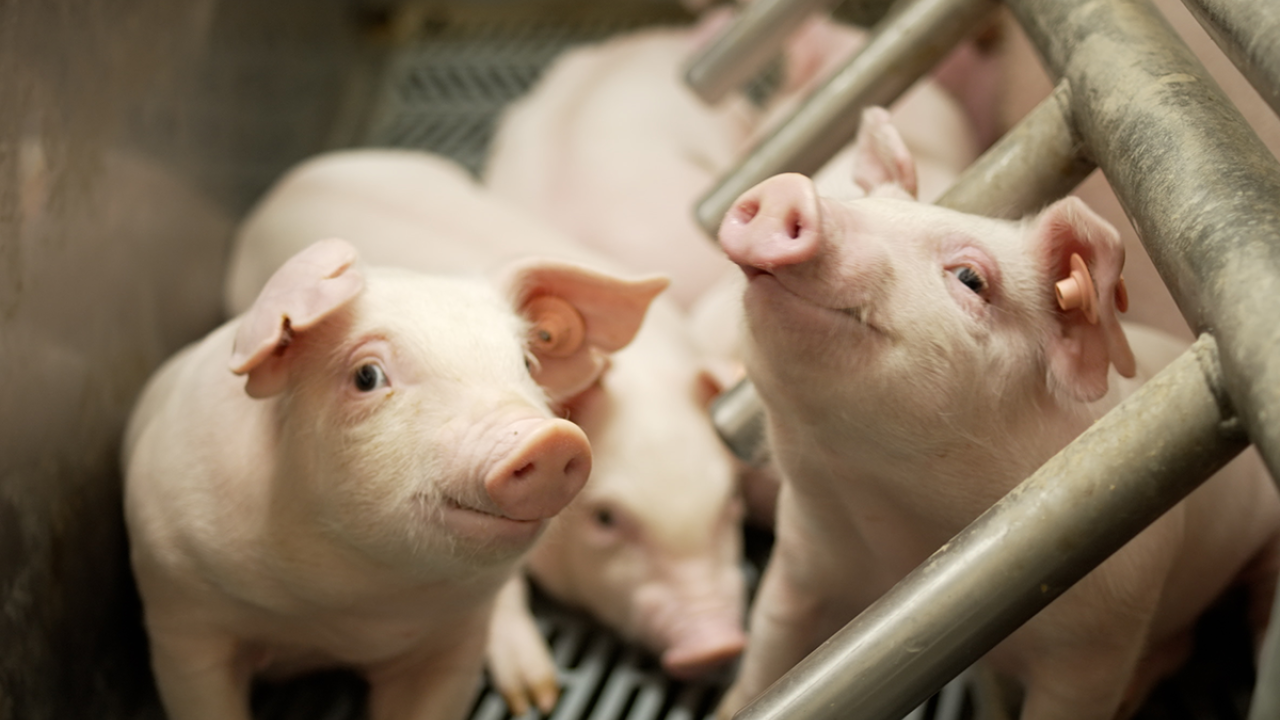
Data’s Role in Sustainability on Swine Farms
Technological advancements continue to shift the pork industry. While not new to producers, data is integral to furthering sustainable pork farming. Producers are experienced in recording data on various aspects of their operations — feed use, litter size, rate of gain and the list goes on — to ensure they run efficient and cost-effective operations.
A similar approach can be applied to better collect and leverage data to reach sustainability goals by measuring items such as estimated tons of carbon sequestered in soil, soil erosion rates, land-applied manure amounts, etc. By measuring environmental impact and outlining plans for improvement, producers are poised to minimize their impact and preserve their farms.
Data is a tool to gain public trust
Consumers are increasingly interested in knowing where their food comes from. Data can help tell the story of a producer’s efforts and operation and establish trust. Producers can show consumers that they are responsible with the amount of feed, land and water used while also showing how they are tangibly working towards sustainability. For example, data can show how much organic waste is reused as fertilizer; how much carbon is emitted on a farm and how much carbon they sequester through crop growth; soil erosion levels; and percentage of no-till adoption, to name a few.
“I think data is all about using this formula: Principles + Practices + Proof = Public Trust,” said Jamie Burr, Chief Sustainability Officer at the National Pork Board (NPB). “The principles are the Pork Board’s We Care Ethical Principles, which include environment, animal welfare, food safety, people, public health and community. Then, practices are the things that we have underneath each of those ethical principles such as the carbon footprint calculator, certification programs, etc. Then, lastly, the proof is the data that shows a farm is following and collecting data on those practices. All the hard work to complete that formula equals public trust.”
The first step in being able to communicate data to stakeholders is obtaining and understanding on-farm data and facing the facts of how a farm is preforming.
Collecting and interpreting data on swine farms
The Pork Cares Farm Impact Report, offered by the NPB, provides producers an opportunity to measure and document continuous improvement efforts on their farms. The NPB is partnering with Eocene Environmental Group, Nestlé and Ducks Unlimited to collect and interpret data for producers and provide grant opportunities for practice implementation. This service equips producers with data specific to their farms, as well as insights on what data means, all with the goal of improving sustainability and a producer’s bottom line.
Information from the report includes statistics producers would not be able to estimate otherwise, such as carbon dioxide emissions, sequestered carbon, soil erosion, manure application rates and conservation practices in use, among others.
“This report brings true value to producers,” Burr said. “It provides producers with their baseline and an opportunity report that details areas to improve sustainability practices. This is important because it outlines areas of opportunity the producer may not know are there. Participating in the report is the first step to taking ownership for sustainability needs that are unseen. For example, if they aren’t using cover crops, they would give them an improvement score if they were to implement them. Eocene helps producers truly understand what their data means and what they should do with it.”
The benefit of tracking data relevant to sustainability is two-fold.
- First, producers have clear benchmarks for where they are and how they can improve. Data provides a tangible perspective on how to further sustainability goals.
- Second, data tells the story of the hard work done by producers to become more sustainable. This is valuable information for pork consumers and will continue to be a critical point for consumers.
Trails End Farm uses data to make sustainable improvements
Dale Stevermer, along with his wife Lori, are owners of Trails End Farm and know first-hand the value of leveraging data to drive farm improvements. As fifth-generation farmers, and farmers of the land Dale’s father and grandfather farmed, they place a high value on their stewardship of the land.
Trails End Farm is a 500-acre farm that houses 4,000 swine with 2,000 in finishing barns at any given time. They also farm corn and soybeans as cash crops. The Stevermers work to balance innovation with reliability; they were quick to see the value in the Pork Cares Farm Impact Report and signed up to take part in it within its pilot year.
Stevermer, like most producers, was already collecting data about his herd, land and crops. He remembers the process of getting this data to Eocene being simple. Because Stevermer’s equipment logs data as he farms and applies manure to fields, he could easily pull the information.
“I gathered all the data I had into one place and sent it over to Eocene,” Stevermer reflected. “Then they created a report that’s two pages, and it outlines things you did and how they affect the environment. For example, how many pigs did you finish, how many gallons of manure did land apply, etc. It gets into environmental scores, too, so it tells you the estimated tons of carbon sequestered in your soil per year and your soil erosion.”
As Stevermer explained the report, he pointed out that data is compared to national and state averages to help producers understand how their farms are performing comparatively. After delivering the report, the Eocene schedules a time to call the producer and discuss the report in detail and answer any questions. Additionally, they help the producer set up a continuous improvement plan, outlining what practices they could add to positively impact their scores.
Farmers know that the bottom line is essential in their line of work. The Eocene helps producers estimate the potential return on investment of sustainability practices, for example, addition of solar panels or selling manure. Stevermer shares that the return on investment will not be immediate, but working with the Eocene helps producers make decisions that are best for their operations. The Stevermers chose to install solar panels to offset their electricity usage and Stevermer went as far as purchasing an electrical truck for his farm work. Additionally, Stevermer installed monitoring systems in his barn so he can closely monitor the temperature as well as water and power usage.
How to access the pork cares farm impact report
Pork producers from across the country can request a Pork Cares Farm Impact Report on the NPB’s website. The initial form takes only 30 seconds to complete. After the form is completed, a NPB staff member will reach out to schedule a 15-minute introduction call with Eocene. Staff from Eocene leads producers through the process of collecting and submitting data, analyzes data to create the report, walks through the report with the producer and provides insight for additional practices to incorporate.
Knowing this data is unique to each producer, the NPB and Eocene have gone to great lengths to ensure reports and documents stay private. All data shared is uploaded through a confidential, secure online platform. Individual producer data is not shared or made public in any way. Aggregate data, which is the collection of results, is used to tell all of pork production’s sustainability story on a broad level.
There is grant funding available for producers in Iowa, Missouri and Minnesota to implement sustainability practices following the results of the Pork Cares Farm Impact Report.
“Valuing sustainability is the right thing to do, which is something all producers believe,” Stevermer says. “But, if we look at sustainability as not just environmental sustainability, but also the ability to continue to operate and the potential to pass the operation onto the next generation, then it’s undeniably important.”
Additional sustainability resources from the National Pork Board
The NPB has additional tools for producers to aid in data collection and interpretation. The Carbon Footprint Calculator is an in-barn calculator to determine carbon output. This calculator provides in-depth data on carbon in swine barns.
Certifications such as the Pork Quality Assurance® Plus (PQA Plus) and Transport Quality Assurance (TQA) allow producers to receive certifications confirming their commitment to animal well-being, environmental stewardship, food safety, worker safety, public health and overall quality throughout the pork life and production cycle. These certifications not only provide education to producers but speak volumes about their operations when they look to create business or financial partnerships.
“Pork producers are proud to create a healthy, reliable, ethical and delicious meat for consumers,” Burr says. “The Pork Cares Farm Impact Report, and additional resources, provides tools to continually invest in and strengthen their operations so they can continue to prosper while doing the right thing for people, pigs and the planet.”
The CLEAR Center receives support from the Pork Checkoff, through the National Pork Board.
